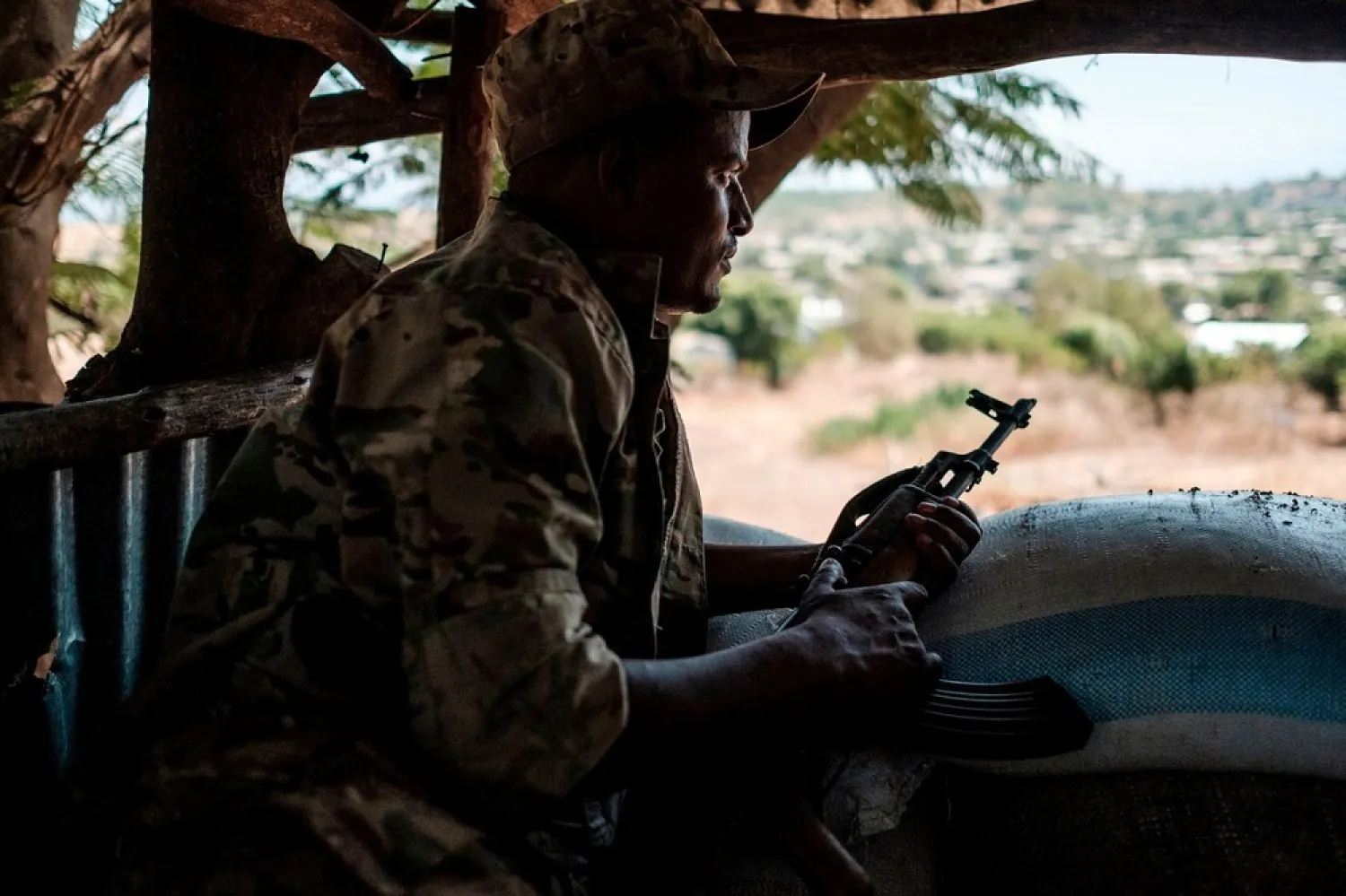The Sudanese army deterred an Ethiopian army attack on the town of Barakat Noreen in the Sudanese region of al-Fashqa.
An Ethiopian military unit had advanced towards Barakat Noreen and fired at an area where the Sudanese army was stationed within its international borders, sourced told Al Arabiya Al-Hadath on Thursday.
The army directly responded and killed dozens of the attacking forces. One Sudanese soldier was killed in the operation, while three others were injured.
Head of a committee responsible for the victims in al-Fashqa Rasheed Abdul Baqi told Asharq Al-Awsat that the clashes lasted for more than two hours.
A Sudanese patrol was combing the area at a settlement built by a major Ethiopian merchant inside Sudanese territory when the clashes erupted, he said, adding that the army thwarted the attack and captured five Ethiopians.
Meanwhile, acting Sudanese Foreign Minister Omar Qamar al-Din criticized Ethiopian ambassador in Khartoum Yibeltal Aemero for accusing Sudan of violating his country’s territories, dismissing them as mere “allegations.”
Sudan has not taken an inch of Ethiopian land, he stressed.
On Thursday, Aemero accused Khartoum of violating his country’s territory.
“Sudan committed a historic mistake when it encroached on Ethiopian territory,” Ethiopia’s Fana semi-official radio station reported him as saying.
Addis Ababa can still address the border dispute through peaceful means, Aemero added, but “it will have to defend its rights should circumstances change.”
Moreover, he escribed Sudan’s reclaiming of its territories as a “morally and legally wrong move given the historic ties it enjoys with Ethiopia.”
Tensions have been high along the Sudanese-Ethiopian border since December 2020 with intermittent clashes after armed Sudanese forces reclaimed agricultural territories in the fertile al-Fashqa region, which had been under Ethiopia’s control since 1995.
Ethiopia claims the territories as its own, while Sudan has cited international border agreements that back its claim.









